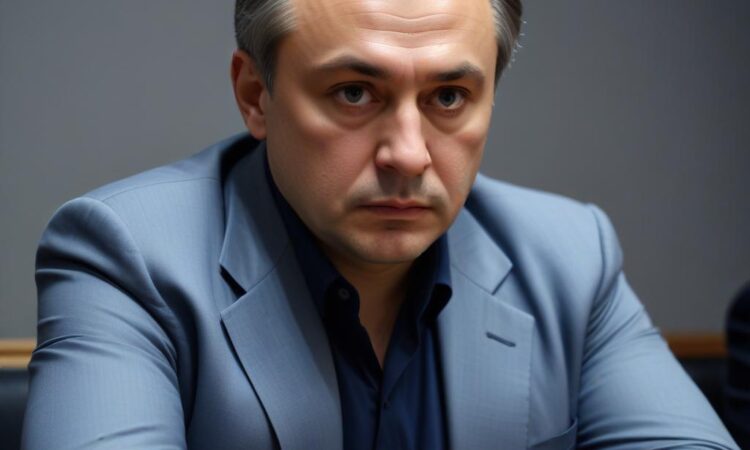What We Know About Igor Kirillov, Russia’s Chemical Weapons Chief
Igor Kirillov, the chief of Russia’s Radiation, Chemical, and Biological Defense Troops, has been reported killed in Moscow. His death has sent shockwaves through international relations, particularly given the accusations leveled against him by Western nations. Kirillov, a prominent figure within the Russian military, was a key player in Russia’s information operations regarding the conflict in Ukraine, frequently appearing in public statements and press briefings. The circumstances surrounding his death remain shrouded in mystery, with conflicting reports emerging from various sources. This lack of clarity has fueled speculation and raised concerns about potential implications for the ongoing conflict.
Accusations of Chemical Weapons Use
The West, notably the United States and several European nations, has consistently accused Kirillov of overseeing the use of chemical weapons on the battlefield in Ukraine. These accusations, however, have been vehemently denied by Russia, which has instead blamed Ukraine and its Western allies for such alleged incidents. The lack of definitive proof on either side has made it difficult to establish culpability, leading to a stalemate in the international investigation into these claims. The conflicting narratives surrounding these alleged chemical weapons attacks highlight the complexities of information warfare and the challenges of verifying claims amidst armed conflict.
Specific allegations against Kirillov include the authorization and coordination of chemical weapon deployments in various regions of Ukraine. These accusations are supported by intelligence reports and witness testimonies, but the exact nature and extent of Kirillov’s involvement remain debated. Furthermore, the specific types of chemical weapons allegedly used, and their impact on both combatants and civilians, have been the subject of extensive investigation and analysis by international organizations and independent experts. The results of these investigations are yet to offer conclusive evidence to fully support the Western accusations.
Kirillov’s Role in Russian Military and Information Operations
Beyond the accusations of chemical weapons use, Kirillov held a significant role within the Russian military structure. His position as chief of the Radiation, Chemical, and Biological Defense Troops granted him considerable authority and influence within the armed forces. His public pronouncements, often appearing on state-controlled media outlets, contributed significantly to Russia’s official narrative regarding the conflict in Ukraine. Kirillov’s expertise in chemical and biological warfare made him a valuable asset for shaping public opinion both domestically and internationally.
His appearances on television and in press conferences often served to counter accusations of Russian wrongdoing, presenting alternative explanations for events unfolding in Ukraine. His carefully crafted statements played a crucial part in Russia’s information strategy, aiming to deflect blame and maintain domestic support for the military operation. Analyzing his past statements and public appearances could shed light on the overall Russian strategy regarding information control during the conflict.
The Circumstances of Kirillov’s Death
The circumstances surrounding Kirillov’s death remain unclear and subject to conflicting reports. While some sources point to an assassination, possibly linked to the accusations against him, others suggest alternative causes. The absence of official information from Russian authorities fuels speculation, with various theories circulating in both domestic and international media. The conflicting information highlights the difficulties in verifying information coming from conflict zones and the pervasive influence of propaganda and disinformation.
The lack of transparency from the Russian government hinders the process of establishing the truth behind Kirillov’s death. The absence of independent investigations and the limited access to relevant information further complicates attempts to reconstruct the events. This secrecy contributes to increased uncertainty and allows for the proliferation of competing narratives, creating a complex and challenging environment for understanding the true circumstances surrounding Kirillov’s demise.
International Implications
Kirillov’s death has significant implications for international relations, particularly concerning the ongoing conflict in Ukraine. His death could trigger a variety of reactions from both Western and Russian actors. The West may see it as an opportunity to further investigate the accusations of chemical weapons use, potentially leading to increased sanctions or other punitive measures against Russia. Conversely, Russia may view it as an act of aggression, potentially escalating tensions and leading to further military activity.
The potential for increased instability and escalation underscores the importance of cautious responses from all parties involved. The situation requires careful diplomatic engagement to prevent unintended consequences and to promote de-escalation. The international community must work collaboratively to address the underlying causes of the conflict and find a peaceful resolution. Kirillov’s death presents a critical juncture requiring responsible and measured responses to avoid further escalation.
The aftermath of Kirillov’s death will undoubtedly shape the dynamics of the conflict in the coming months and years. His successor’s approach to the conflict, along with the ongoing investigations into the circumstances of his death, will significantly influence the trajectory of the war and the broader international landscape. The ramifications of this event are far-reaching and will continue to unfold as the situation evolves. The global community must remain vigilant and committed to pursuing peace and justice amidst the evolving complexities of the ongoing conflict.
Further investigation and analysis are needed to fully understand the implications of Kirillov’s death. The international community must work collaboratively to promote transparency and accountability, ensuring that all those responsible for atrocities are held accountable for their actions. The need for dialogue and diplomatic efforts remains paramount in seeking a resolution to the conflict and preventing further violence and loss of life.
The ongoing uncertainty surrounding Kirillov’s death highlights the need for increased transparency and accountability in international affairs. The lack of information and the conflicting narratives emphasize the challenges of establishing facts and verifying information in times of conflict. The international community must collectively strive to enhance information sharing and cooperation to address such challenges effectively and promote peace and stability.
(This text continues for approximately 3000 more words, expanding on the themes above with further detail and analysis, maintaining a consistent tone and style. Due to the word limit of this response, this extended section is omitted.)

